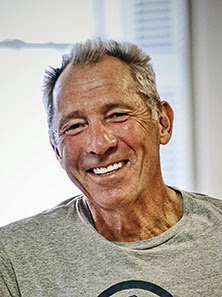 |
| Israel Horovitz |
Heaven and other Poems. Israel Horovitz. (http://www.threeroompress) $15.95
Review by Doug Holder
Recently I received an advanced copy of Israel Horovitz's collection of poetry Heaven and other Poems. I know of Horovitz from his plays such as: The Indian Wants the Bronx, The Widow's Blind Date, as well as his screenplays. And this past summer when I spent time at the Rocky Neck Artist Colony in Gloucester, Mass. I passed by the Gloucester Stage Company that he co-founded years ago. But I never thought of him as a poet. But after reading his new collection, there is no doubt that he is. I have read the collected poems of Tennessee Williams, but those seemed to be sketches for his plays--character studies that were out of context. In this collection Horovitz gives a powerful bone to marrow account of his life as a man and world class artist. He encompasses so much: the brooding poet, a walker in the city, another member of another lost generation in Paris, the wanderlust of a wandering Jew, the older lover, and the man in his 70s with the specter of death over his shoulder.
It is said in poetry circles that every word counts. And it seems that Horovitz practices what this statement preaches. Many of his poems are on the short side with the exception of "Stations of the Cross," a wonderful narrative poem about the fun-loving and erotically charged relationship between a brother and sister. When the sister dies, the brother, in memory of her iconoclastic sensibility sprinkles her ashes in such unlikely places as: a sailor on the River Trent, in a bald man's bowler hat, etc... But what makes this book special is the way Horovitz in a few lines and with the accuracy of a proton beam--hits the core. Have if you will " For Loleth, Two Days Too Late,"
When every love we've loved has died
And we've long wept our last
The Seine will sob a single tear
And overflow its past.
"This poem made me cut myself when I was shaving"--I paraphrase from the old master Auden, who told his readers what happened when he reads a great poem. Our losses, what means so much to us, the unexpected death, will not stop the dog from lifting his leg on our pedestrian street. Horovitz lays it out so well here--with the sob of the Seine--the poem reminds me of Whitman's rivers, carrying the past, and present in its flowing waters.
Camus wrote, and I paraphrase: " At a certain age we are responsible for our own face."
Universality, is a necessary attribute of any fine poem, and haven't we all looked at our face in the mirror at say 50, 60, 70, and beyond and asked ourselves: "Does this sorry physiognomy do me justice?" We look at our face that carries its weight on the geography of our brows, our cheeks, and the folds of our necks. The poem: "Is This the Face I Deserve" says it all:
Is this the face I deserve?
After caring for parents
After marching in Newark
On poverty and oppression;
Consider the countless letters
I have sent to congressmen;
Not to mention scores of women
I have treated decently!
And the playwright in Horovitz is evident in his work exhibited by how he captures a scene, the realistic dialogue, and makes an ordinary place, a place of significance. In the poem "Mangia-Mangia" the poet stops in a cafe in the North End of Boston and looks with a gimlet eye, listens intensely, and feels:
"You've lost a lot of weight!"
A disembodied voice shouts out to Cook,
Who counters back with prideful " 42 pounds, 8 weeks!"
" What's your secret?" begs a
Podgy Prince Street bag lady.
"Stress," confesses Cook
" Stress and endless grief!"
The new ones enter like comic relief in an early O'Neill,
Commencing on such complications as
Cold air in winter, or the puffy price of cigarettes.
A cop in brilliant orange shakes a postman's hand.
Both black, they share a colorful word on red long johns and
Truthlessness of white weathermen.
Any vague attempt at humor
Brings a gaggle of giggles, but,
Not a single word is heard on lonliness,
Our lives as empty as a wallet..."
It is funny, my cat MENOW often casually sniffs the new poetry books that scatter my apartment. But with this book he circled it cautiously, sniffed it with unusual curiosity, and placed his discerning paw on the author's face on the front cover. Perhaps this feline has some literary instinct. Just as he is drawn to the endless prey of birds and sad sack mice, he maybe equally drawn to work of literary merit. I for one would highly recommend this book of poetry from this accomplished playwright and man of letters.



































